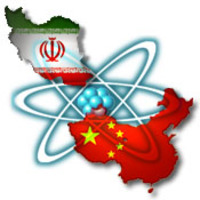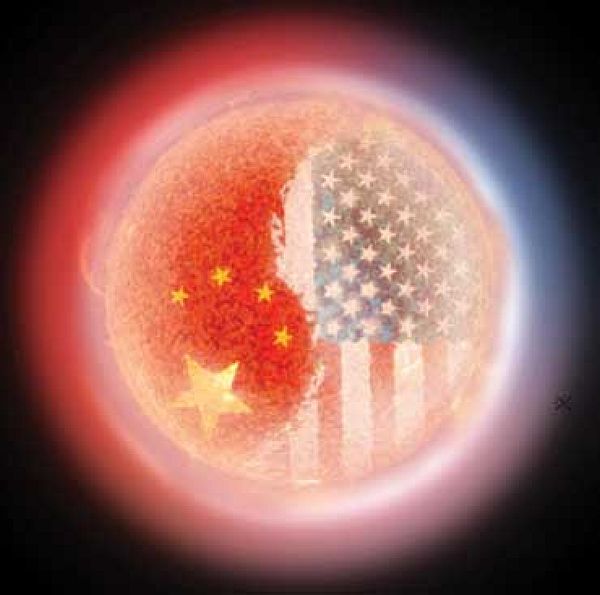
The Myth about G-2
Even as Niall Ferguson deciphered the creation of a world economy on the basis of the term Chimerica wherein symbiotically one nation would supplant the needs and demand through its supply and henceforth they would co-exist it was a staggering reality that was bound to take form.
The myth deepened as Obama announced his plans for the creation of a G-2 block last November in coordination with Beijing. One thing has obviously become very clear to everyone that being a superpower America might have enjoyed lots of world hegemony but with the descent of money in the past financial crisis there have been a resurgence of the east and it has caught the vision of every on lookers past the Atlantic from New York to Tokyo that the is always an end.
Everyone is talking and everyone knows- the world economy has entwined itself in such a way that every pawn depends entirely on the movements of these two G-2 countries.
However with the recent list of scandals there have been lots of internal tension that have been generated between the G-2 block and its peaceful co existence kind off looks unlikely. This past winter there have been several events which have struck heavy discord between the two nations.
This winter has been a cold one for China-US relations. So many serious disagreements between the two countries have not surfaced simultaneously for decades: the US is exerting unprecedented pressure on China to revalue the Yuan, a cyber war erupted between Google and the Chinese administration, Washington intends to sell weapons worth $6.4 bn to Taiwan, China dumped US bonds worth $34.2 billion, both sides threaten to introduce punitive import tariffs, and US President B. Obama received 14thDalai Lama Tenzin Gyatso in the White House.
In the past China and the US avoided taking harsh measures against each other serially, but evidently things have changed beyond recognition over the past several months.

Iranian barricade
Obama proposed this particular idea of joining hands with the China to sustain the growth that these two blocks could have had if they joined hands however Iran is one of the issues US is not in the right terms with China. China stands in the way of vetoing against whatever NATO and US proposes in the Security Council to wage aggression against Iran.
This support comes up because Iran is China's major commercial and strategic partner. Over 15% of China's oil import (a total of some 450,000 bpd) is supplied by Iran, with only two countries - Angola and the Saudi Arabia - supplying greater amounts. China took two important new steps to boost its cooperation with Iran in the energy sphere in the late 2009.
China's state-owned Sinopec signed a contract with Tehran to develop the first phase of the Yadavaran oil field, one of Iran's largest, and to invest $6.5 billion in the upgrade of Iran's refining capacities. Beijing reckoned it made no sense to scrap the plans in the name of taking the role of a minor partner in the duet with the US. Thus US have still not being able to tame Iran.
Iran appears in the list of countries of unrecognised countries with the likes Of Nigeria, Yemen etc. This list is released by the United States government wherein they have forgotten to put in names of many other undemocratic governments like Columbia or Honduras which have similar rule but are pawns to the Obama regime.
Iran’s reluctance to trade with US and its trading procedure which it has called to be shifted to be on a non dollar currency intensifies the situational imbalance and strains the relationship in the G-2 block.
Revaluation of the Yuan
Even in the time of the slump the American production house is not being able to sell what it produces because the cheap imports from the Chinese economy that the American consumer has so much got addicted to.
The phrase means as literally as simple it seems- America eats what china produces. This is wrong at least for the American industries. There is no real time market left in the US and with the slump whatever they had has been devastated. They had just now got slightly under the two digit job loss percentage but with no reform.
Jobs are going to be created only if there is demand but the demand is eaten away by the Chinese goods produced and the internal situation remains the same. This situation is intensified because China is a communist nation is not increasing the wages of its people. This triggers its economy to be able to produce export so very cheap that buyers have nowhere else to go.
China agreed to a compromise over the issue in 2005 when it set a flexible rate for Yuan synchronized with a pool of currencies, and the Yuan actually added 21% by July, 2008.
The process came to a halt on the eve of the global economic crisis. Currently the exchange rate is about 6.82 Yuan per US dollar compared to 8.2 Yuan in the early 2005. Industrialized Western countries absorbing the majority of China's exports are unhappy with the arrangement: US President B. Obama and several other Western leaders believe that the artificially underrated Yuan shields the Chinese market from Western imports while giving Chinese exporters an unfair advantage.
This simply means china is using its powers just to keep the economy running at the expense of others.
Taming the $
Beijing found an alternative approach to curbing financial risks – according to the US Department of the Treasury, in December, 2009 China sold $32.2 billion worth of US bonds and thus reduced its stockpile of US bonds to $755 bn. As a result, currently - for the first time since August, 2008 - Japan, not China, is the world's largest holder of US bonds (with a total of $769 billion).
The official version is that China dumped the US bonds in an effort to diversify its currency holdings. To avoid excessively injecting liquidity, China will not likely opt for quick cuts of investments in US bonds. They continue to play an important role in the Chinese currency reserves – the US securities account for some 70% of China's total which has topped $2.3 trillion. Still, China’s is getting rid of a fraction of its dollar assets had repercussions worldwide and may be indicative of the country's long-term strategy.
The simple end results can be expected as follows:
The dependence of china on the American economy would be contained as make it less vulnerable if another series of default occur.
The valuation of the American bonds would seriously suffer if china keeps on dumping them in the market.
With the plans of creation of an SDR to replace the currency for oil trading and gold price calculation the might of the dollar may be tamed. Henceforth with the passage of time it is obvious that trading in dollar is no longer a affectionate choice.

Taiwan and Tibet
Both of these territories are considered to be interwoven with china as China continuously demands them to be its own. This has raised a number of un-necessary remarks from people all around the globe and called for criticism. The Chinese government on these issues is a Nazi of their own kind.
Manhandling as what was done in the recent past was not met with great appreciation from the Chinese side. The recent sale of arms of about 6.4 billion USD to Taiwan by America and the recent warm meeting of 14thDalai Lama Tenzin Gyatso in the White House have been accepted as acts of treachery by the Chinese government. China controls these localities and entertains no un-communist movement in these areas.

Google China Showdown
Last but not the least is the Goole China showdown. Chinese inclination toward controlling media, pubic speech and any other modes of conversation makes it one of the strangest country ever. Even though it projects itself to be a communist country in the capitalistic terms and a country that helps new found capitalistic systems to grow up it is nowhere close to achieve it.
Banning public speech and controlling voices would only reverse growth and nothing else. Google charged China with flooding the world with spyware. According to Google, cyber attacks against its corporate infrastructures had been launched from China. Namely, attempts were made to break the mailboxes registered on Google by Chinese dissenters. Google responded by lifting search request censorship via its engine, thus momentarily conquering a greater share of the Chinese market.
Chinese officials, army, and academic circles deny involvement in the cyber attack, automatically switching the suspicion to Baidu, the main domestic company posing competition to Google. Analysis International says Baidu's market share was roughly twice that of Google in the second half of 2009 – 61.6% vs. 29.1%. While the disparity persists, the gap between the two companies is steadily growing narrower year by year.
At the moment Google's withdrawal from the Chinese market and its compromise with the Chinese administration – that is, the reinstatement of censorship - seem equally possible. Considering that China is home to some 20% of the world's Internet surfers, it is clear that the US Company would hate to lose grip on such a market.
But more could be expected when the situations are naive












.jpg)








